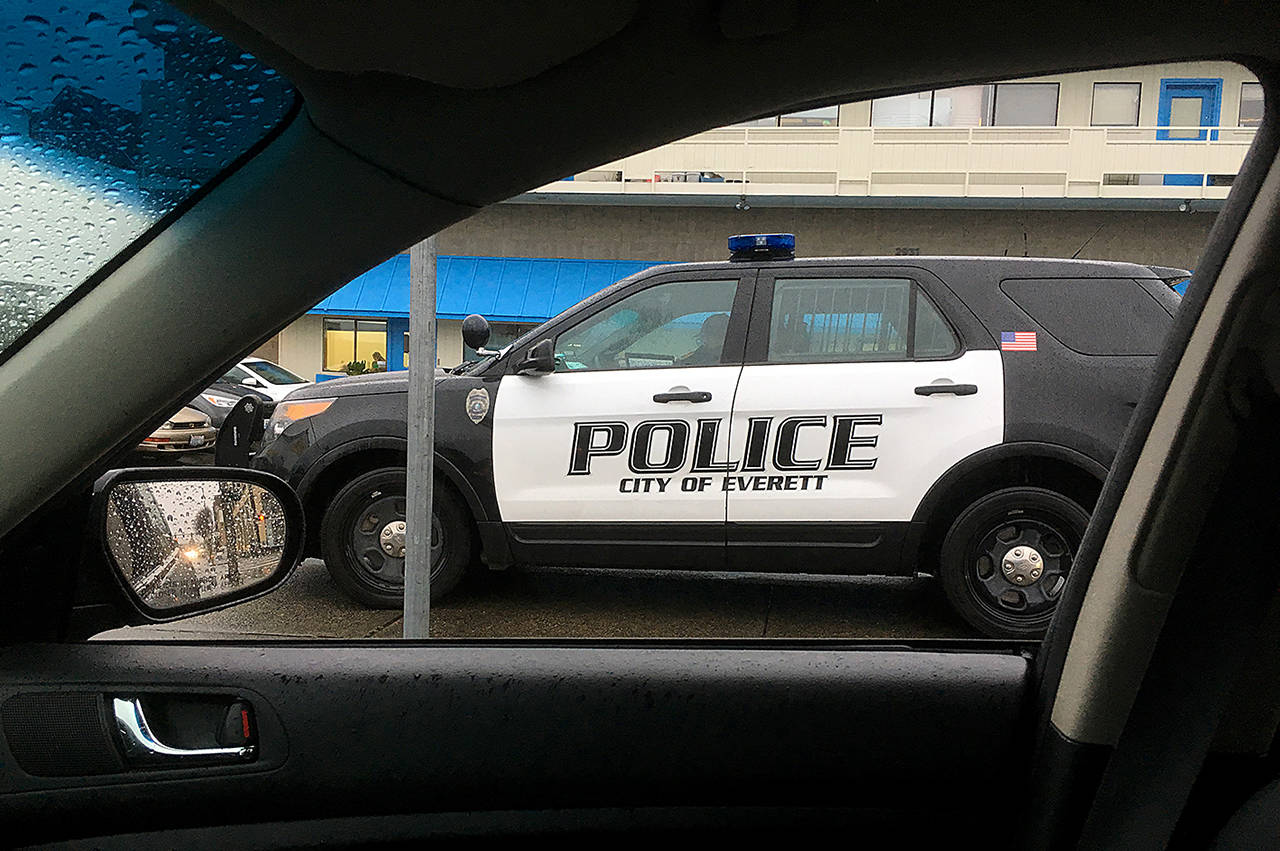EVERETT — The Everett Police Department spends more than 2,000 hours a year responding to false alarms triggered by security systems.
To curb this, the Everett City Council unanimously voted Wednesday to implement a false alarm fine. This would be charged every time an officer is dispatched to investigate an alarm call and finds no evidence the activation was caused by criminal or attempted criminal activity.
The penalty will be between $100 to $200, depending on the type, for each unfounded alarm generated.
“The Everett Police Department responds to a significant number of false alarms that cause a considerable impact to police resources,” said Everett police Capt. Greg Lineberry when he introduced the ordinance at a recent council meeting.
In 2017 and 2018, the police department received about 5,000 alarm calls each year, of which more than 90 percent were found to be false, according to police data. Responding to these calls, which averages about 13 a day, takes officers about 12.5 minutes per incident.
Only about 1 percent resulted in a case report showing there was some sort of criminal or attempted criminal activity involved, Lineberry said.
Using approximations from industry associations, the city estimates there about 6,000 residences and 650 businesses, schools, churches and government buildings with alarm systems.
“In the absence of having a program to manage and discourage false alarms, we find ourselves responding to a lot of frequent flyers or locations that generate a lot of repeat false alarms,” Lineberry said.
The city had a false alarm fine which was instituted in the late 1970s. It was discontinued in 1991, when the regional dispatch service switched to a different software system that didn’t support false alarm billing, according to the Lineberry.
The fine will go to the alarm company. It is up to them to pass the bill to the alarm owner. The companies will also be charged an annual license fee depending on how many alarm systems they operate in the city.
Also part of the new rule, alarm operators have to attempt to contact two people associated with the alarm to confirm if it is valid or not before calling for a police response.
This is not required for robbery alarms, panic alarms, or alarms that have been already verified as true, such as through a video alarm system, Lineberry said.
The fine won’t be applied to some of the locations with the highest number of false alarm calls. In 2017, the police impound lot topped the list with 132, according to police data. Government buildings along with the Everett and Mukilteo school districts will be exempted from the penalty.
The number of alarm calls received from the impound lot is related to the type of alarm required at that facility, said Kari Goepfert, a spokesperson for Everett.
“Our impound lot is an extension of our evidence room and we are required to have a burglary alarm system there, which includes very sensitive motion detectors,” Goepfert said in an email.
The Snohomish County Courthouse had the third highest number of false alarm calls in 2017 with 53, though courthouse security officers deal with those calls. Also in the top 20 that year was the Snohomish County Vehicle Maintenance facility with 17 false alarms that Everett officers responded to.
“Tracking false alarms will allow us to better identify government buildings with a high number of false alarms. We are opting to work directly with those entities to resolve their issues rather than levying a fine, which would ultimately be a cost to taxpayers,” Goepfert said.
Many other nearby jurisdictions charge an annual permit fee to alarm owners, according to Lineberry. Councilmembers decided against this, instead charging only those who generate false alarms.
“If you look at the number of hours that are devoted to this it’s really one full-time police officer a year, basically 40 hours a week,” said councilmember Brenda Stonecipher, when a redrafted ordinance was introduced to the full council. “We just can’t afford that anymore.”
Lizz Giordano: 425-374-4165; egiordano@heraldnet.com; Twitter: @lizzgior.
Talk to us
> Give us your news tips.
> Send us a letter to the editor.
> More Herald contact information.

























